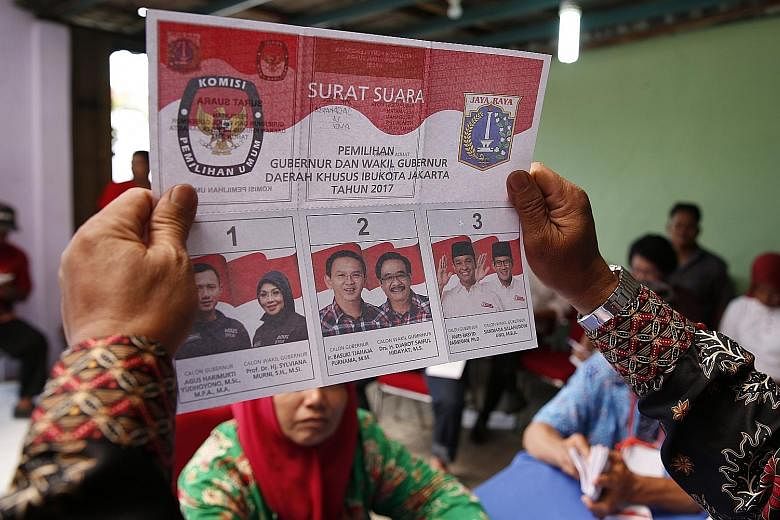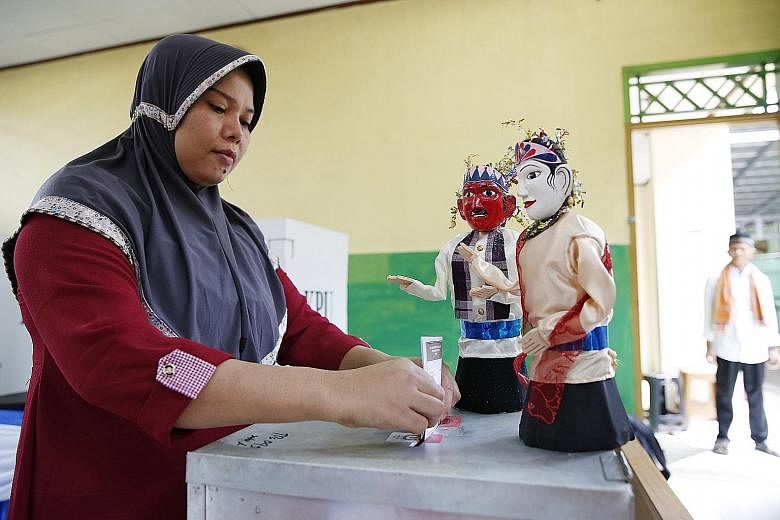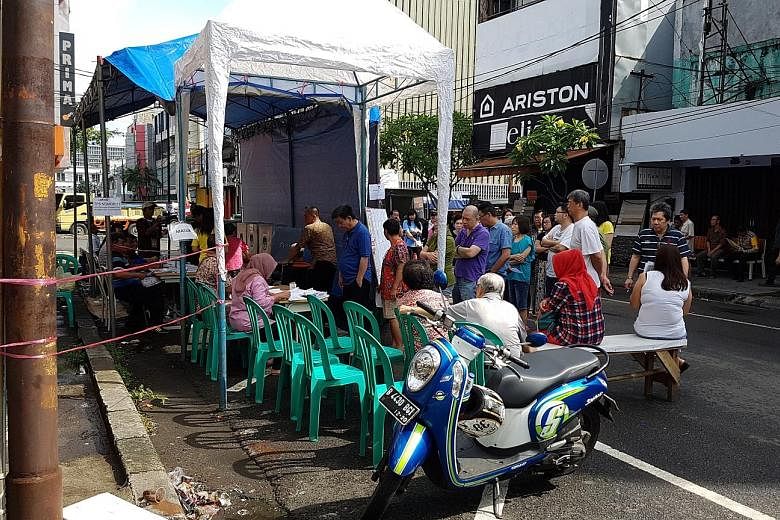The roller-coaster road to City Hall was supposed to peak on election day, after a four-month campaign, but people in Jakarta will still have to wait about two more weeks to find out who their next governor may be.
Despite the tight race in the exit polls yesterday, none of the three pairs of candidates contesting in the capital won a majority in the snap counts taken after polling stations closed.
What is clear, however, is that the incumbent Basuki Tjahaja Purnama and his deputy Djarot Saiful Hidayat will likely face off with former minister Anies Baswedan and businessman Sandiaga Uno in a second election some time in April.
The Democratic Party's Agus Harimurti Yudhoyono - son of former president Susilo Bambang Yudhoyono - and running mate Sylviana Murni are unlikely to make the final two, after exit polls showed them taking no more than 20 per cent of the vote yesterday.
The remaining 80 per cent or so was evenly spread between the Basuki-Djarot and Anies-Sandiaga pairs, although the former had a slight edge in almost all of the eight exit polls released last night.
-
41m
Number of Indonesians registered to vote in local elections.
101
Number of local elections that took place across the country.
Election rules in Indonesia require candidates to win a majority of the vote. Failing that, there will be a run-off between the top two performers at the first ballot.
The official results will be out only in about two weeks, but yesterday's snap polls were enough to give an indication of the final tally. This is because these exit polls, called "quick counts" by pollsters in Indonesia, have been highly accurate since the first direct elections were held across the country in 2004.
Kompas news chief editor Budiman Tanuredjo yesterday said surveys conducted by his researchers indicated that Basuki-Djarot had won 43 per cent of the votes, while Anies-Sandiaga had 39.8 per cent.
Agus-Sylviana managed only 17 per cent, consistent with polling data released over the last two weeks.
Mr Budiman said that he does not expect the final results to vary much from the various exit polls.
Basuki, who reclaimed the lead he lost after being charged with insulting Islam in December last year, was all smiles when he met supporters at his campaign headquarters yesterday.
Vindicated by the exit polls, he said he believes that the quick count results are accurate.
"Three or four months ago, there were pollsters who said (we) would come in third place, who said we would get less than 20 per cent," said Basuki. "But now we see that for the time being we are leading... But our struggle is not over yet; our spirit must not fade away."
The Jakarta election was just one of 101 held across the country, with 41 million Indonesians expected to cast votes to elect their local leaders.
But all eyes have been on the capital, where President Joko Widodo rose from governor to head of state in 2014, after he beat Gerindra Party leader Prabowo Subianto in the presidential election. Anies-Sandiaga are contesting under the opposition Gerindra ticket, while Basuki-Djarot are backed by the ruling Indonesian Democratic Party of Struggle (PDI-P).
The involvement of party leaders such as Mr Prabowo and Dr Yudhoyono, as well as former president Megawati Sukarnoputri, the PDI-P chairman, has also raised the stakes in the Jakarta polls, said experts.
Basuki, better known by his Chinese nickname Ahok, has faced violent opposition from Muslim hardliners, who mounted a series of street rallies against him.
Jakarta General Elections Commission chief Sumarno said only "low-profile" campaigning will be allowed in the second round, which should kick off in April.
There will be just one debate and no blusukan, local jargon for campaign walkabouts, he added.
"There also won't be big rallies. The candidates have done enough of that already."



